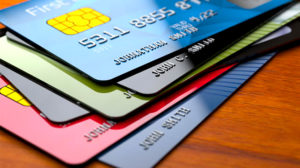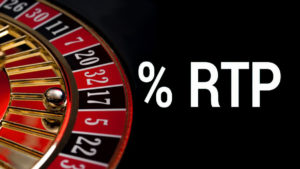Are Online Casinos Rigged? Here’s What You Need to Know
The question “Are online casinos rigged?” comes up in nearly every conversation I have with new players. After reviewing hundreds of online casinos over the past decade and witnessing the industry’s evolution firsthand, I can tell you the answer isn’t black and white.
While the vast majority of licensed casinos operate fairly, understanding how they work and how to spot the rare bad actors is crucial for any serious player.
How Online Casinos Really Work
Understanding the mechanics behind online casinos is essential before we can address fairness concerns. Modern online casinos operate on sophisticated systems designed for transparency and verifiability.
Every legitimate online casino relies on four core components that work together to ensure fair play:

Random Number Generation (RNG) forms the foundation of all casino games. These complex algorithms generate millions of random sequences per second, determining everything from slot machine outcomes to card distributions in blackjack. Each result is completely independent—previous spins or hands have zero influence on future outcomes.

House Edge Implementation is built directly into game mathematics, not through result manipulation. In European Roulette, for example, the single zero pocket creates a 2.7% house advantage. This mathematical edge ensures casino profitability over time without requiring any manipulation of individual results.

Secure Payment Processing involves licensed payment processors and segregated player accounts. Safe online casinos maintain your deposits in separate accounts from operational funds, protecting your money even if the casino faces financial difficulties.

Third-Party Game Development means most casinos license games from established software providers like NetEnt, Microgaming, or Evolution Gaming. These developers stake their reputations on fair games and undergo their own rigorous testing processes.
How to Verify an Online Casino’s Legitimacy
Rather than trusting marketing claims, you can independently verify any casino’s legitimacy through concrete evidence and documentation.
Start by examining the casino’s licensing credentials. Look for licenses from respected jurisdictions like the Malta Gaming Authority, UK Gambling Commission, Curacao Gambling Licenses or regulators like the New Jersey Division of Gaming Enforcement. These bodies require regular audits, financial reporting, and strict operational standards.
Next, verify testing certificates from recognized agencies. Legitimate casinos display badges from organizations like eCOGRA, iTech Labs, or GLI. Click these badges to confirm they link to authentic certificates—fake badges are surprisingly common among rogue operators.
Research the software providers powering the casino’s games. Established developers like Pragmatic Play, Play’n GO, or Red Tiger won’t risk their industry reputation by partnering with questionable operators. A casino featuring games from multiple reputable providers is typically trustworthy.
Finally, review published payout reports. Transparent casinos regularly publish Return to Player (RTP) percentages, often audited by third parties. These reports should be easily accessible and updated monthly.
Regulated vs. Offshore Casinos: Understanding the Difference
The distinction between regulated and offshore casinos significantly impacts your protection as a player, though both can operate legitimately.
Regulated casinos operate under strict jurisdictional oversight. In New Jersey, for instance, casinos must maintain physical servers within state borders, undergo monthly financial audits, and provide detailed player protection measures. These operators face severe penalties for any violations, including license revocation.
Offshore casinos hold licenses from jurisdictions like Curacao, Panama, or Costa Rica. While many operate honestly, these licensing bodies typically provide less stringent oversight and fewer player protections. If disputes arise, your recourse options may be limited compared to regulated markets.
The key difference lies in accountability. Regulated casinos answer to authorities with real enforcement power, while offshore operators may have more flexibility in their operations—both positive and negative.
Warning Signs of Potentially Rigged Casinos
While truly rigged casinos are uncommon in today’s market, certain red flags should trigger immediate concern and prompt you to look elsewhere.

Payment issues: Legitimate casinos process withdrawals within their stated timeframes, typically 1-5 business days. If you encounter endless verification requests, sudden account restrictions, or payments that never arrive, consider this a major red flag.
Licensing: Always verify licensing claims directly with the regulatory body’s website. Some operators display fake licenses or claim regulation from non-existent authorities. The Malta Gaming Authority and UK Gambling Commission or jurisdictions Like Panama or Curacao maintain public databases of licensed operators.

Missing or suspiciously high Return to Player rates: Legitimate slots typically offer RTPs between 94-98%. If a casino claims significantly higher rates or refuses to publish RTP information, approach with caution.

Technical issues during winning sessions: While occasional disconnections happen, frequent problems, specifically during bonus rounds or big wins, warrant suspicion.
How RNGs and Testing Agencies Protect Players
Random Number Generators and independent testing form the backbone of fair online gambling, providing verifiable proof that games operate as advertised.
Modern RNGs use complex mathematical algorithms that produce truly unpredictable results. These systems generate random sequences continuously, not just when you click “spin” or “deal.” The timing of your action determines which number in the sequence gets used, making prediction impossible.
Independent testing agencies verify RNG integrity through rigorous processes. eCOGRA, one of the most respected testing bodies, performs monthly audits examining millions of game rounds to ensure statistical accuracy.
GLI focuses on technical compliance, testing both RNG systems and game mathematics.
iTech Labs specializes in mobile gaming certification, ensuring fair play across all devices.
These agencies don’t just test once. They conduct ongoing monitoring. Monthly reports verify that games continue performing within expected statistical ranges. Any deviation triggers immediate investigation and potential certification suspension.
The certification process itself is comprehensive. Testing agencies examine source code, verify mathematical models, and run millions of simulated game rounds. Only after passing these extensive tests can casinos display certification badges.
Protecting Yourself: Best Practices for Safe Online Gambling
Smart players take proactive steps to ensure they’re gambling at legitimate, fair casinos rather than hoping for the best.
- Always verify licensing before depositing money. Check the regulator’s official website to confirm the casino’s license is current and valid. Pay attention to license restrictions—some only cover specific games or regions.
- Set clear limits before you start playing. Decide on maximum loss amounts and stick to them regardless of outcomes. Legitimate casinos provide tools to help enforce these limits, including deposit caps and session time restrictions.
- Keep detailed records of your gambling activity. Document deposits, withdrawals, and significant wins or losses. This information proves invaluable if disputes arise and helps you track your overall gambling patterns.
- Research player experiences through independent forums and review sites. While individual complaints don’t necessarily indicate systemic problems, patterns of similar issues across multiple players warrant attention.
The Bottom Line on Online Casino Fairness
The overwhelming majority of licensed online casinos operate fairly and transparently. Modern regulatory frameworks, sophisticated testing procedures, and competitive market pressures create strong incentives for honest operation.
However, this doesn’t mean all casinos are created equal. Choosing operators with strong licensing, verified testing certificates, and solid reputations remains crucial. By understanding how legitimate casinos work and recognizing warning signs of problematic operators, you can enjoy online gambling with confidence in the games’ fairness.
The key is education and vigilance. Armed with the knowledge in this guide, you’re equipped to make informed decisions about where to play and how to protect yourself in the rare instances where problems arise.





